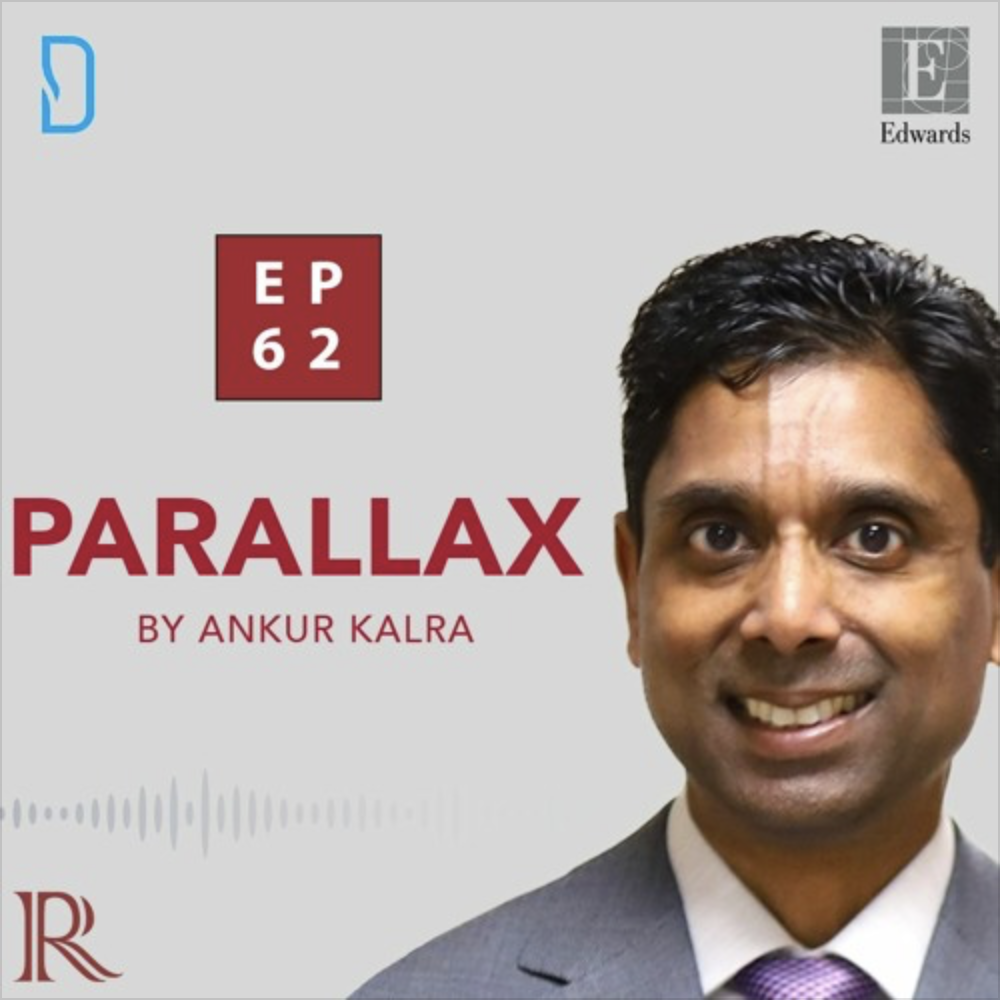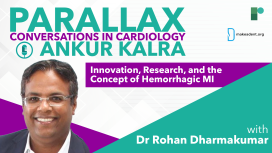
"There is a high global prevalence of hostile work environment in cardiology, including discrimination, emotional harassment, and sexual harassment.” Sharma G. et al. JACC 2021.
Dr Naidu was at the beginning of his career when, having experienced micro-aggression, his chairman shared an insight that still shapes the way he thinks about addressing professional jealousy and bullying: “Don’t let people bring you down, you just keep working and lift them up.”
In this week's Parallax, Dr Ankur Kalra is joined by Dr Srihari S Naidu, Director of Cath Labs and Hypertrophic Cardiomyopathy Center at the Westchester Medical Center and President Elect of NY ACC, for an honest conversation on a challenging topic within the cardiology community.
Cardiology, a highly competitive field, still generates the sense that power is equal to strength. In this insightful and practical episode, Hari revisits his own experiences both as a leader and as a trainee, navigating complex situations. What can you do as a target when being bullied? How can hostile environment, cliques be best addressed? Ankur asks what skills are needed to help mitigate the emotional impact of intimidation. Hari elaborates on what it means to belong to a team, and how can leaders at a local level work for an inclusive community, a better cardiology for all.
Questions and comments can be sent to “podcast@radciffe-group.com” and may be answered by Ankur in the next episode. Guest @SrihariNaiduMD, hosted by @AnkurKalraMD. Produced by @RadcliffeCARDIO.

Brought to you by Edwards: www.edwardstavr.com



US Cardiology Review journal, has recently seen a 7-fold increase in female editorial board members in response to journal-based strategic initiatives and the stellar work of USC editorial board leadership, Ankur Kalra (Editor in Chief) and Bill Gogas (Deputy Editor in Chief), who were keen to drive this change. With thanks to Dr Anastasia Mihailidou’s tenure as a new board member and her suggested nominees, ten new female board members have recently joined US Cardiology Review’s editorial board.

In this episode, Mike opens up about his childhood in Stilwell, Oklahoma. Ankur and Mike discuss how the inductive quality of art can complement the deductive principles of science. Mike recalls earlier stages of his career and warns about the blinding effect of the ego-driven, competitive culture of cardiology. Ankur asks Mike about fatherhood and about his role as an educator.
What does it mean to be fearless as a medical professional? How can you protect yourself from the emotional toll of the profession? What is Mike’s advice to early career cardiologists?
Sponsored by Edwards.

During her interventional cardiology fellowship, Dr Baron became fascinated by the implementation of novel technologies. She earned her degree in Clinical Epidemiology and spent a year working at the FDA’s Device Evaluation unit.
In 2019 Dr Baron presented the results of her late-breaking trial, COAPT. Ankur invites Suzanne to discuss the economic analysis of the study and to give a short introduction to cost-effectiveness analysis. Suzanne provides an overview of the trial and they talk about the importance of understanding the value and benefits of new devices from both the patient and the health-economic point of viewpoint.

How should you start building a research programme? What are Chuck Simonton’s thoughts on the relationship between doctors and the industry? What is Chuck’s message to young cardiologists?

After the #MedBikini campaign provoked by a misogynistic study that scrutinized female doctors’ social media posts, this episode is about creating a safer environment for female healthcare professionals.





